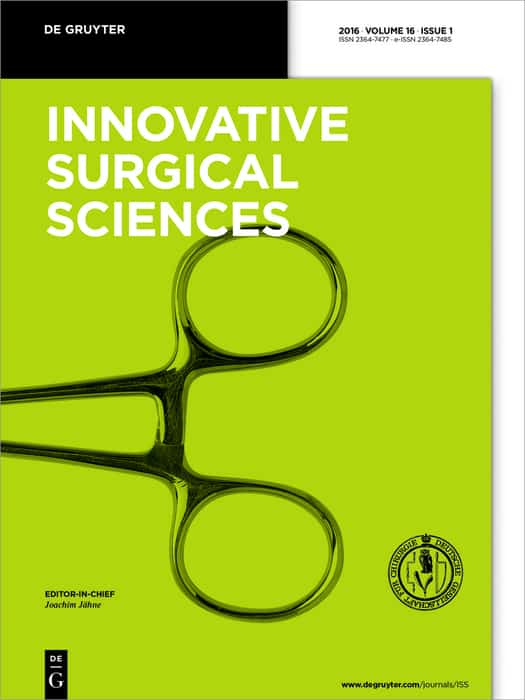Open Access and the Future of Scientific Communication
The German Society of Surgery is committed to Open Access as a necessity for scientific progress. The society's journal Innovative Surgical Sciences is a freely accessible ressource for the surgical community.
One of the aims of this year’s International Open Access Week is for contributors to reflect upon our involvement in Open Access by joining the discussion around the theme “Open in order to… .” Last year, De Gruyter and the German Society of Surgery partnered to launch Innovative Surgical Sciences (ISS).
The Journal aims to promote surgical and scientific knowledge by providing free digital information to the surgical community worldwide. We were encouraged to establish our own Open Access journal by other initiatives, such as the Berlin Declaration on Open Access to Knowledge in the Sciences and Humanities, to which the German Society of Surgery has been a signatory since 2015.
Ensuring quality
“A transparent peer-review process ensures all contributors maintain the highest standards of quality assurance as well as good scientific practice.”
To demonstrate our active commitment to the Berlin Declaration on Open Access and to foster transparency in the evaluation of scientific research, Innovative Surgical Sciences publishes complete reviewer reports and author response letters as supplementary materials and as part of the article record. A transparent peer-review process ensures all contributors maintain the highest standards of quality assurance as well as good scientific practice.
Participate in the process
The German Society of Surgery intends to create value for its current and future members by agreeing to cover all the article processing charges for the first three years of publication. This is an investment in the future and applies to all contributions submitted by members as well as to authors invited to submit manuscripts to the Journal. Additionally, the editorial team aims to provide each submission with rapid peer review, allowing a first decision to be reached within 30 days of submission.
We also argue for alternatives to the current approach of assessing impact and assigning value to scientific literature.
Assuring availability
We are working with De Gruyter to deliver article-level metrics that capture readers’ engagement with articles published in the Journal. In time, the impact research has on a scientific community will be measured by the community itself, and this can only be fully achieved by ensuring unrestricted access to the scientific literature.
“We advocate to the surgical community as well as the greater public that all knowledge belongs to the commons and that funded research should be available to everybody.”
By providing rapid, transparent, and high-quality evaluation of scientific research, while also ensuring the published research is disseminated as widely as possible via the Internet, we advocate to the surgical community as well as the greater public that all knowledge belongs to the commons and that funded research, particularly tax-funded research, should be available to everybody.
Together, we are enthusiastic participants in the future of scientific communication.
This is part III of our three article series for Open Access Week 2017.
Read the other articles:
